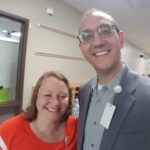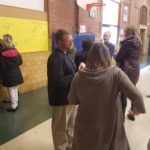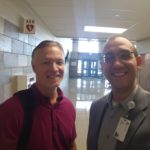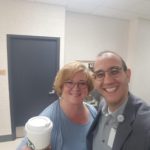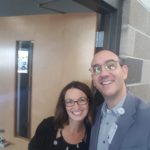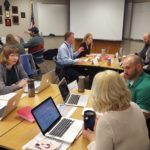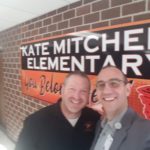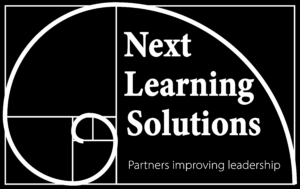Workshop Descriptions

Every engagement is customized to the specific needs of the school or district. The following are possible titles of workshops to jumpstart your thinking. I look forward to partnering with you in meeting you and your organization’s needs.
For examples of virtual trainings with Chad, see the Ed Leaders Network: Practical Knowledge, Skills & Tools or Making Meetings Work for ALL
Workshops:
As part of this highly interactive learning experience, participants will:
- Distinguish the difference between presentation and facilitation
- Understand the role that nonverbal behaviors play in building rapport and maximizing effectiveness and efficiency
- Identify and utilize the mindsets necessary for effective facilitation
- Plan for the use of specific strategies, moves, and techniques to improve meeting outcomes
- Refine their use of the 3 + 1 skills in maximizing participant energy and focus
- Develop skills for navigating resistance and conflict
- Craft an effective agenda for an upcoming meeting
Whether you’re new to the PLC work or a long-term veteran, many of us use the term without being clear about why it’s important, what it means, or how to do it. Break down the Why, What and How of PLCs in simple, easy-to-understand concepts and use excellent tools to maximize your own productivity and effectiveness, not to mention improve results for students.
Participants will:
- Understand the two reasons why it is important for the adults in a school to collaborate
- Identify and use the three Big Ideas to assess their own practices
- Utilize the four Critical Questions to drive collaborative work, and
- Refine their practice by being clear about the “CIA” of their specific content/grade(s)
In times of remote learning and sharp inequities, addressing these gaps is more important than ever. Based on Dr. Dumas’ internationally-acclaimed dissertation that has been downloaded thousands of times and cited in dozens of publications, this fast-paced, multi-day workshop engages participants in actively identifying gaps in knowledge and working to fill them. Where does a leader’s charisma fit in a PLC culture? What principles of adult learning do you need to know and use? How do you lead change through continuous improvement and innovation? How can you leverage staff involvement in important decisions and allocate resources to maximize effectiveness? These and other questions will be explored in this hands-on session and follow-up coaching and collaboration designed for teacher leaders, principals, and leaders who support buildings in increasing effectiveness and results.
Based on the Amazon Best-Selling Book of the same name, participants will develop:
* An understanding of the importance of a collaborative environment for teachers in improving effectiveness and results for students
* Skills for building relationships and engaging in productive conflict
* An expanded repertoire of practical tools for engaging with individual staff members and groups of staff
* Clarity around their role as leaders in effecting change in their setting
* Increased efficacy in their role in creating a collaborative workplace
* Their knowledge around the most important curriculum, instructional, and assessment practices leading to increased student learning
How do you increase educator effectiveness and results for all students? Based on Learning Forward’s Executive Leadership Program, in this 30 hours of professional learning over the course of the year you will engage you in a replicable process to build capacity as you systematically learn 1) change processes, theories, and models, 2) the standards for professional learning, while 3) leading your specific change. A key element of this learning is the active implementation of concepts through focused action research using a structured process.
Participants will:
* Develop leadership expertise to support and manage complex change
* Apply Standards of Professional Learning as a framework for planning, implementing, and evaluating complex change initiatives to advance educator effectiveness and student success
* Acquire strategies and tools to manage change
* Use professional learning to address local challenges related to change management
Strategic Planning is a comprehensive, in-depth process that leads to clarity about the purpose and beliefs of the organization, strategic direction for the next five or more years, and plans of action that will lead to improved results. Over the course of two days, engage in processes with specific tools that will build your capacity to lead this planning for your school or district.
Participants will:
* Identify the common components of strategic planning processes
* Use a model to plan their strategic planning process
* Utilize tools to maximize time and energy for increased effectiveness
The seven research-based Standards of Professional Learning can be a solid lens through which we can view all of our improvement efforts. What are they? How do they interact with each other? How can we leverage them to improve our systems, practices, and results for students? This two-day session deeply explores the seven standards and considers practical applications to your setting.
Participants will:
* Identify the seven Standards of Professional Learning
* Apply the use of the Standards to their own work
* Consider changes to current practices to better align with research-based adult learning practices
Engage with Chad 1-on-1 or in small groups to collaborate and plan for any number of upcoming processes and/or events. Possible areas for collaboration and planning include:
* Strategic planning
* Professional Learning Community implementation
* Leadership development
* School Improvement and Professional Development planning
* Curriculum development and alignment
* Instructional practices and improvement
* Assessment literacy
* Data usage and analysis
* Presentation development and delivery
* Teacher and principal evaluation
* Use of learning walks/walkthroughs
* Maximizing funds for improvement
Participants will:
* Identify and meet objectives that they would like to meet through collaboration and planning
Research demonstrates that, without coaching and feedback, only 5 – 15% of what is learned in trainings will be applied. Using Cognitive Coaching skills honed over two decades of leadership practice, Chad will engage leaders in reflecting on their practice, planning for future interactions, and problem-solving pitfalls they have or will encounter. Coaching can be 1:1 or in small groups.
Participants will:
* Gain clarity about their work
* Consider changes in their own thinking, behaviors, and beliefs to obtain desired results
* Develop confidence in themselves and their practice by increasing their effectiveness and results for students
Data-informed decision-making is the foundation of quality improvement efforts. Based on Judy Sargent’s work, this two-day workshop will take participants through a structured process of gathering and analyzing school data to make quality decisions for long-term improvements.
Participants will:
* Identify the four types of data
* Use a structured process to analyze their data
* Experience the use of real-time classroom-based data to inform decision-making
* Identify goal area(s) for future planning
Assessment literacy is the bedrock of high quality instructional practices, and the development and use of appropriate tools to assess student learning are critical in this process. Designed for teachers, this hands-on series of three to four days will build the capacity of teachers to use the Five Keys of Quality Assessment (Stiggins) to design and use high quality common formative assessments aligned to intended outcomes and provide them with the information they and their students need in order to make higher quality instructional decisions.
Participants will:
* Identify the Types of Evidence that align with specific Kinds of Targets
* Use Backwards Design to create high quality assessment tools
* Create and/or revise current assessments to ensure validity and reliability and better meet instructional needs
What do we want students to know and be able to do? This question forms the basis of instructional practice and requires a coherent, systematic, and systemic approach. PK – 12 teams will engage over a series of days in a process based on the CLI (Curriculum Leadership Institute) work to clarify program beliefs, goals, grade- or course-level outcomes, and daily objectives that are aligned to state or national standards and articulated from grade to grade.
Participants will:
* Create a common set of beliefs and program goals
* Identify the most essential content and skills for each grade or course
* Ensure articulation between grades or courses to ensure minimal gaps and overlaps
* Consider specific next steps for implementation of their newly-written curriculum guides

